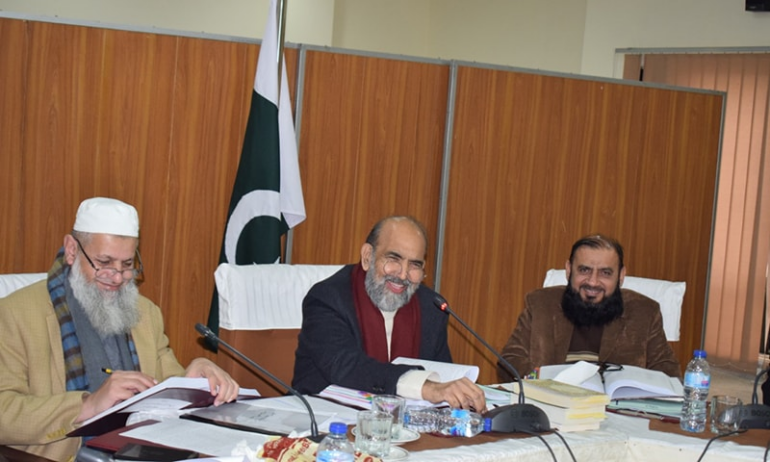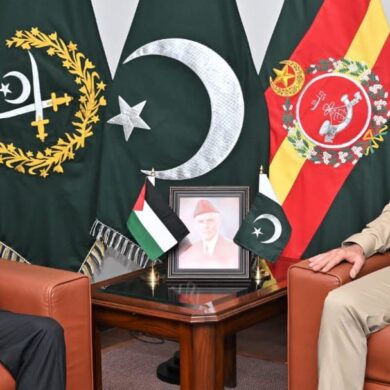The Council of Islamic Ideology (CII) on Saturday took a momentous step towards strengthening the values and principles that form the bedrock of Pakistan’s identity by unveiling a comprehensive ‘code of conduct’.
Addressing the press conference after a consultative meeting with prominent religious scholars and leaders, Chairman Dr Qibla Ayaz said the code, aimed at maintaining peace and tranquility, particularly in the Muharram-ul-Harram across the country, emphasized the importance of upholding the Constitution, respecting the dignity, and remaining loyal to the state under all circumstances.
He said the newly introduced code placed the duty on every citizen to acknowledge and abide by the constitutional authority of the state, demonstrating unwavering allegiance to it and its institutions.
He said the key aspects of the code revolved around upholding the dignity and respect of fundamental rights as outlined in the Constitution. This included the principles of equality, social and political rights, freedom of expression, belief, worship, and assembly, he added.
Dr Qibla said the Islamic foundation of Pakistan’s Constitution and laws would be preserved, with citizens being entitled to pursue peaceful efforts for the implementation of Shariah adding that to maintain the spirit of Shariah, the code strictly forbade any use of force in the name of Islam, armed actions against the state, violence, and incitement.
Additionally, he said no individual had the right to declare anyone, including government officials, military personnel, or security agencies, as infidels.
He urged the scholars and individuals from all walks of life to extend their support to the state and its institutions, particularly those responsible for law enforcement and security, to eradicate violence from society.
He said one crucial aspect of the code was the call for individuals to refrain from associating with movements driven by linguistic, regional, religious, or sectarian biases as the state stands firm in taking strict action against such groups to preserve unity and harmony.
Moreover, Dr Qibla said, “The code highlighted the importance of avoiding the imposition of personal views or ideologies on others, as it contradicts the spirit of Shariah and can lead to corruption.”
In the educational realm, he said, “Both private and government institutions, as well as religious educational establishments, must refrain from promoting militancy, extremism, and hatred alarming that those found involved in such activities would face legal consequences based on evidence and witnesses.”
He categorically stated that stringent administrative and punitive measures would be taken against those promoting extremism and violence, irrespective of their affiliation with any organization or ideology.
While all Islamic schools of thought have the right to propagate their beliefs and ideologies, he mentioned that the code strictly prohibited inciting hatred or making baseless accusations against individuals, institutions, or groups.
The chairman said the code underscored the sanctity of religious figures by stating that no person or group had the authority to say indecent words about the Prophet Muhammad (Peace be Upon Him), other prophets, the wives of the Prophet, the Ahl-e-Bayt, the Rightly Guided Caliphs, or the companions.”
“However, the decisions regarding blasphemy cases would be under the purview of the courts,” he added.
Dr Qibla said, “The code ensured that no individual shall declare another Muslim as a non-believer adding that only qualified religious scholars could discuss Islamic principles based on religious doctrines, and decisions on apostasy would be determined by the courts in accordance with the Constitution.”
In a resolute stance against terrorism, he said the code forbade any individual from supporting or engaging in any form of terrorism, promoting mental or physical training for terrorists, or participating in terrorist activities.
He said the code encouraged healthy discussions on Islamic jurisprudence and theoretical issues in educational institutions, providing appropriate platforms for research and investigation.
Additionally, he said it highlighted the responsibility of all Muslim citizens and government officials to fulfill their duties in accordance with Islamic teachings and the Constitution.



